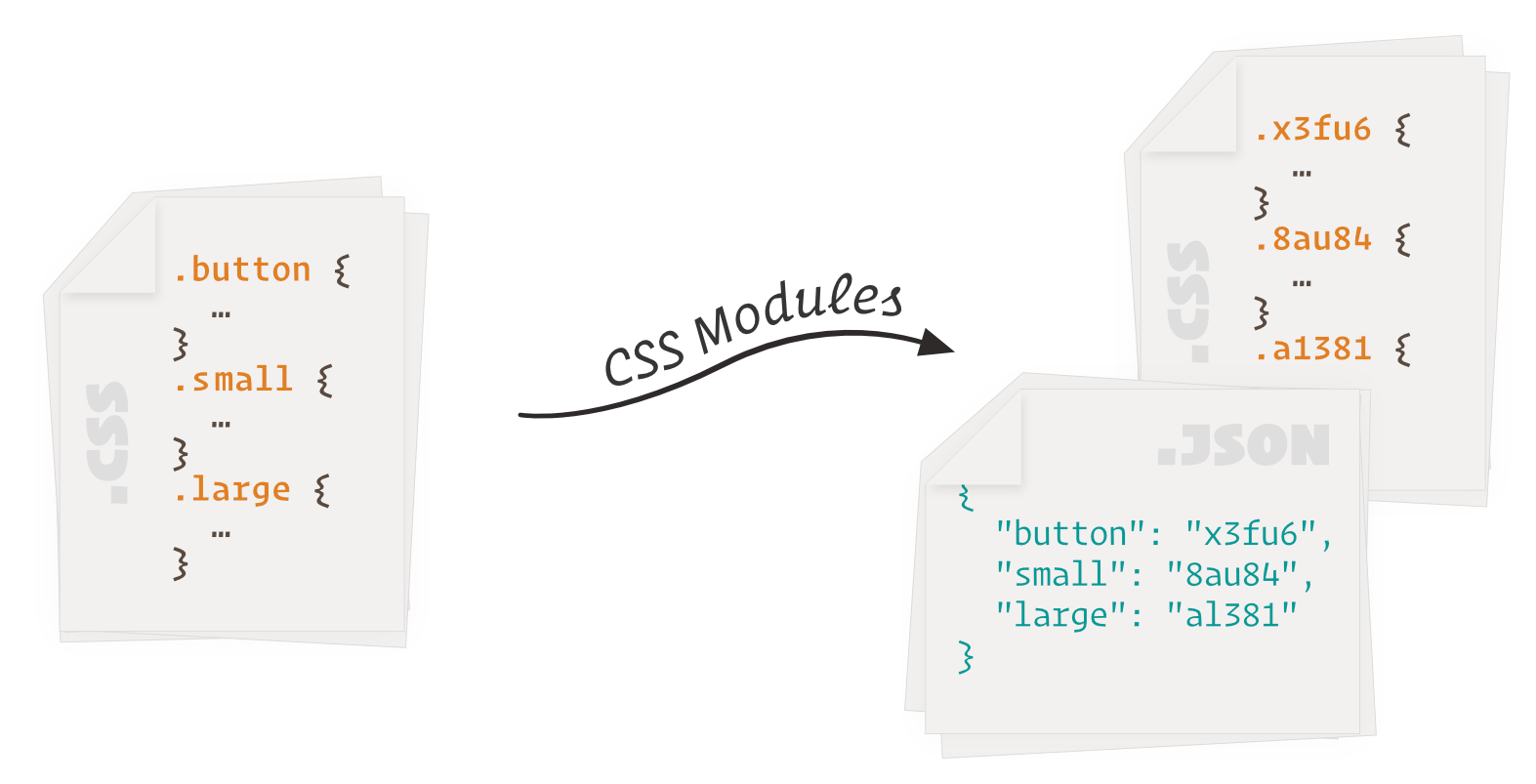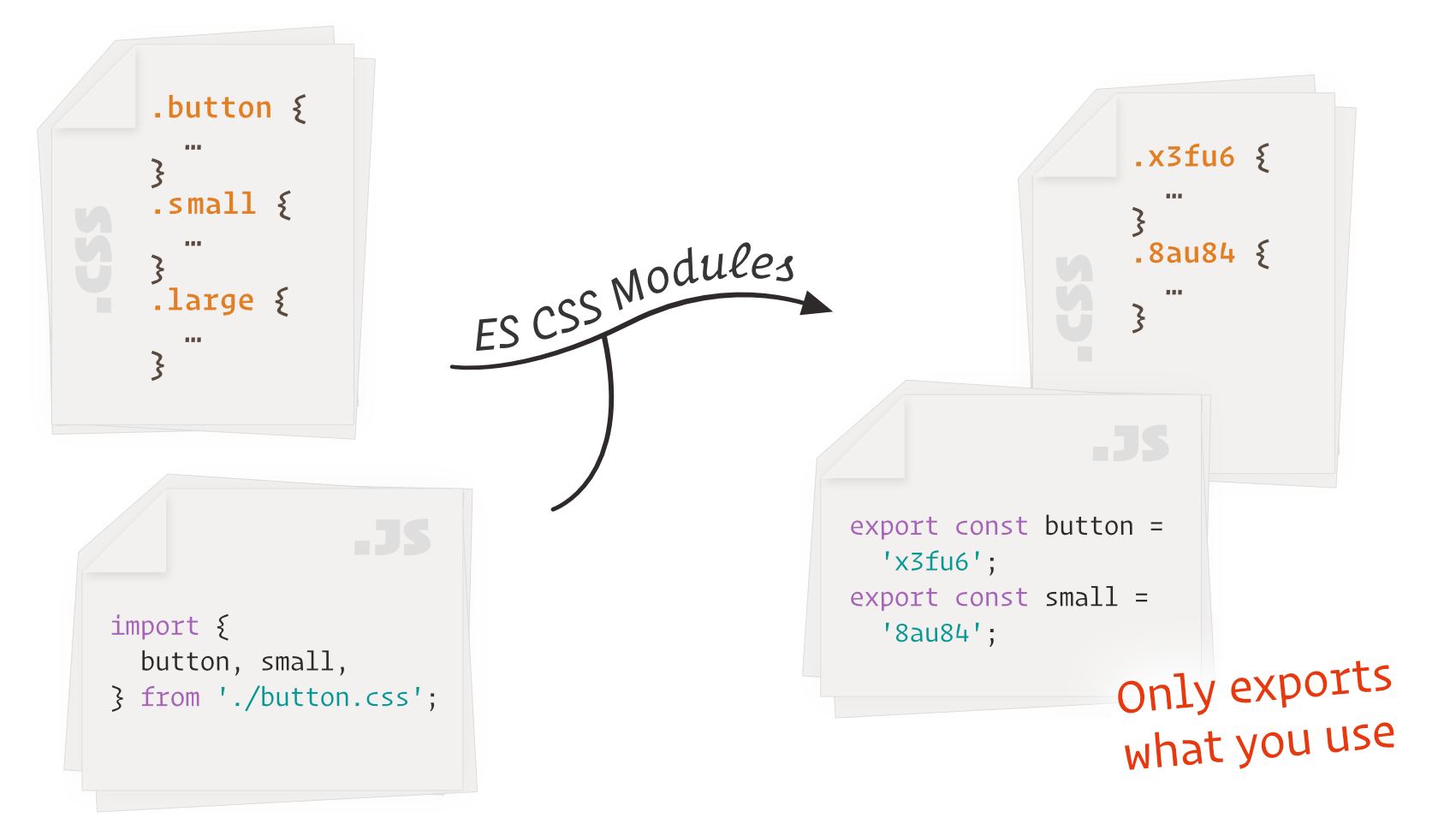
Security News
Opengrep Emerges as Open Source Alternative Amid Semgrep Licensing Controversy
Opengrep forks Semgrep to preserve open source SAST in response to controversial licensing changes.
es-css-modules
Advanced tools

npm install --save-dev es-css-modules
I’ll assume you are already sold on CSS Modules. If you haven’t used CSS Modules, you should definitely try it!
For most people, they’re using CSS Modules with webpack, so what actually happens is abstracted for them. CSS Modules at its core takes a bunch of CSS files and mangles each class name in every file to make every file have its own unique namespace. This is why class names do not conflict. It also exports a JSON file with the mapping of the original class name to the mangled class name. Simply put,

ES6 brought in import/export syntax, which now means that it is possible to statically determine which classes are actually used. ES CSS Modules takes advantage of this to produce CSS files without unused styles.

An additional advantage of this is that physical JavaScript files are created. This means that you are not tied to a specific module bundler for your JS files: using ES CSS Modules means you can now use Rollup.
import esCssModules from 'es-css-modules';
postcss([
esCssModules({
jsFiles: 'src/App.js',
}),
])
.process(...)
.then(...);
As a minimum, you must define the parameter jsFiles. This is a path or an array of paths for the files you wish to check CSS imports. The paths can be absolute paths, or paths relative to process.cwd(). By default, the imports within files will be recursively checked.
By default, all your css files will generate a .css.js file with the export names. I.e. export const button = "x3f6u";. This behaviour can be customised via getJsExports, which is a function that is called with (cssFilename, styleExports, styleExportsObject), where styleExports is JavaScript file string that specifies the exports, and styleExportsObject is an object whose keys is the export name, and values the corresponding export value.
As in default CSS modules, we generate a random-ish name for each class you define. To configure how classes are generated, you can specify the generateScopedName parameter, which is a function called with (className, filename, cssFileContents). This function is only called for classes that will actually be used, so it's perfectly safe to use something like CSS Class Generator to generate names.
By default, we'll warn you when you don't use a class you've defined. This can be turned off via warnOnUnusedClasses.
We’ll also remove unused classes in the CSS files, which can be turned off via removeUnusedClasses.
As stated before, jsFiles will recursively look for imports. This can be disabled via the recurse parameter.
We use the parser used for ESLint and a default configuration that works for React. If you need to override the parser options, you can specify parserOptions using the ESLint format. You can also specify the entire parser via the parser property: to use babel-eslint, set the parser to 'babel-eslint'. The default parser and default parser options are exported under the names defaultParser and defaultParserOptions.
You can configure how modules are resolved via resolveOptions, which is the same as node-resolve. Above the standard options, we modify the extensions to include .css files, and modifiy the isFile function to reject all .css.js files. If you need to load .jsx files, just add that to the extensions to the default resolve options---they're under the name defaultResolveOptions.
The complete options are as follows,
esCssModules({
jsFiles,
getJsExports,
generateScopedName,
warnOnUnusedClasses,
removeUnusedClasses,
recurse,
parser,
parserOptions,
resolveOptions,
})
Unlike regular CSS Modules, we do not export animation names.
At present, a class and keyframes definition cannot have the same name until this is fixed

FAQs
PostCSS plugin that combines CSS Modules and ES Imports
The npm package es-css-modules receives a total of 95 weekly downloads. As such, es-css-modules popularity was classified as not popular.
We found that es-css-modules demonstrated a not healthy version release cadence and project activity because the last version was released a year ago. It has 1 open source maintainer collaborating on the project.
Did you know?

Socket for GitHub automatically highlights issues in each pull request and monitors the health of all your open source dependencies. Discover the contents of your packages and block harmful activity before you install or update your dependencies.

Security News
Opengrep forks Semgrep to preserve open source SAST in response to controversial licensing changes.

Security News
Critics call the Node.js EOL CVE a misuse of the system, sparking debate over CVE standards and the growing noise in vulnerability databases.

Security News
cURL and Go security teams are publicly rejecting CVSS as flawed for assessing vulnerabilities and are calling for more accurate, context-aware approaches.